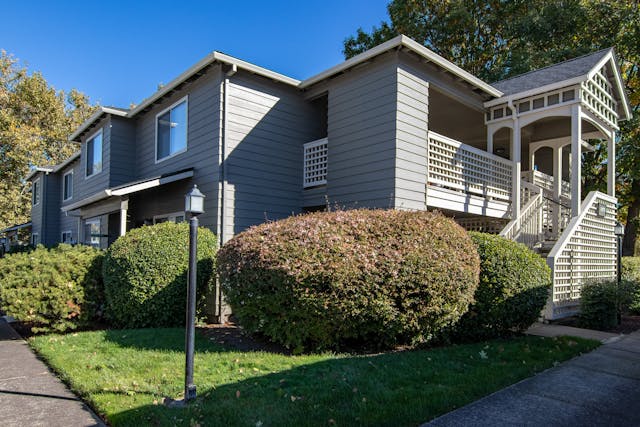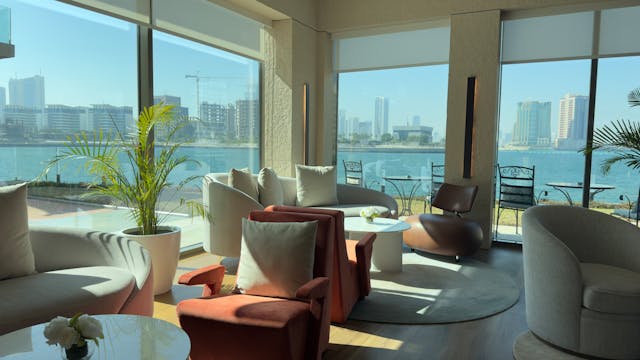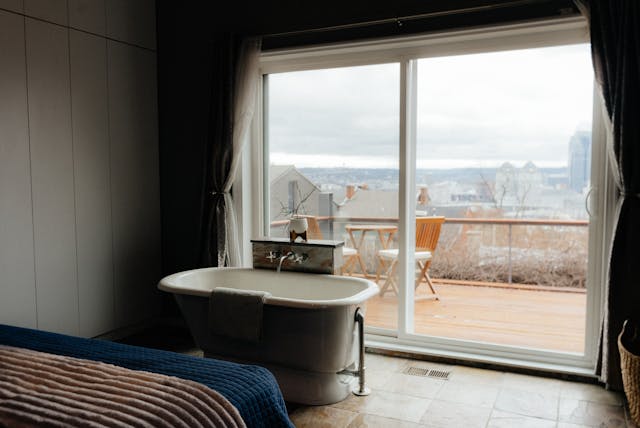Operating a successful Airbnb in the Finger Lakes requires more than just listing your property online. With a steady flow of visitors drawn to the region’s wineries, waterfalls, and outdoor activities, property owners have a golden opportunity to generate consistent income. However, competition is fierce, and managing short-term rentals in this popular destination comes with unique challenges.
Creating a Memorable Guest Experience
Guests visiting the Finger Lakes often expect more than just a place to sleep. Properties that embrace the region’s charm and offer unique amenities tend to perform better. Including locally inspired touches, such as providing a guide to nearby wineries or featuring artwork that showcases the area, can enhance the guest experience.

Investing in quality furniture and bedding ensures comfort, while thoughtful details like a fire pit for cool evenings or a kayak for lake excursions make a property stand out. Guests also appreciate simple but practical touches, such as a well-stocked kitchen and clear instructions for appliances and Wi-Fi.
One owner I worked with added a coffee station featuring locally roasted beans and a French press. This small addition led to glowing reviews, with guests mentioning it repeatedly. These personal touches are what transform a one-time stay into a lasting memory—and better reviews mean more bookings.
Keeping Up with Seasonal Demand
The Finger Lakes region experiences strong seasonal fluctuations in tourism. Summer and fall tend to attract the most visitors, with peak demand during foliage season and the wine harvest. Winter, while quieter, can still draw those seeking a cozy getaway or skiing opportunities.
Pricing strategies must reflect these changes. Dynamic pricing tools can adjust rates based on demand, ensuring your property remains competitive while maximizing revenue during peak seasons. Many owners find that mid-week discounts in the slower months help fill vacancies without undercutting their overall pricing strategy.
Updating your property to reflect seasonal appeal also makes a difference. A summer listing might highlight proximity to hiking trails and lake access, while winter guests may be drawn to features like a wood-burning stove or heated floors.
Managing Turnovers Efficiently
Quick turnovers between guests are critical for maintaining occupancy rates. Cleaning must be thorough and efficient, especially during busy periods when back-to-back bookings leave little room for delays. Hiring a reliable cleaning service familiar with Airbnb standards helps ensure the property is spotless and ready for the next guest.
Property owners should create a clear checklist for cleaners. Items like checking for left-behind belongings, refilling toiletries, and resetting thermostats ensure no detail is overlooked. Regular inspections of linens, appliances, and furniture during turnovers prevent small issues from becoming larger problems.
A property I managed once ran into trouble when a previous guest accidentally left the oven on a self-cleaning cycle. Because the cleaning team wasn’t instructed to check appliances, the issue wasn’t noticed until the next guest arrived. Adding a thorough appliance check to the cleaning process prevented similar situations in the future.
Navigating Local Regulations
Short-term rentals in the Finger Lakes are subject to a variety of local rules and regulations. Towns and villages often impose restrictions on permits, occupancy limits, or tax collection. Skipping these steps can lead to fines or, worse, the inability to operate your rental.
Property owners should consult local zoning laws and apply for any necessary permits before listing their property. Many municipalities in the region require registration and charge a small fee for compliance. Additionally, short-term rentals are often subject to occupancy taxes, which platforms like Airbnb may collect and remit on your behalf.
Some areas have stricter rules about parking, noise levels, or trash disposal. Providing clear instructions to guests about these regulations ensures they comply and protects your standing with neighbors and local authorities.
Standing Out in a Competitive Market
The Finger Lakes boasts hundreds of short-term rentals, so creating a standout listing is key. High-quality photos taken during peak seasons, when the property and surroundings are at their best, are worth the investment. Professional photography highlights unique features and makes the listing more appealing.
Well-written descriptions that emphasize both the property’s amenities and its proximity to popular attractions drive more bookings. Mentioning specific wineries, hiking trails, or nearby lakefront activities helps guests picture their ideal trip.
Prompt responses to inquiries and maintaining an accurate calendar further improve booking rates. Guests often decide on a property within hours of finding it, so being available and responsive makes a big difference.
Managing Reviews and Guest Feedback
Reviews are one of the most important factors in an Airbnb’s success. Encouraging guests to leave positive feedback and addressing any concerns they raise builds credibility and trust. Owners should follow up with guests after their stay, thanking them for their visit and gently requesting a review.
Negative feedback, while rare for well-run properties, must be handled carefully. Responding politely and addressing specific issues shows future guests that you take concerns seriously.
One property owner I worked with received a complaint about unclear directions for using a hot tub. We updated the listing with detailed instructions and placed a laminated guide on-site. The owner then responded to the review, thanking the guest for their input and explaining the steps they’d taken to resolve the issue. Future guests commented positively on the improvements, turning a potential problem into a selling point.
Maintaining the Property for Long-Term Success
Short-term rentals require consistent upkeep to stay profitable. Seasonal maintenance tasks, like gutter cleaning or inspecting heating systems, prevent costly repairs. Owners should also budget for periodic updates to furnishings, appliances, or decor to keep the property looking fresh.
Landscaping plays a big role in curb appeal, especially for properties with lake views or extensive outdoor space. Keeping lawns trimmed, planting seasonal flowers, or maintaining a clean dock area attracts guests and justifies higher rates.
Investing in long-term upgrades, like energy-efficient windows or modern HVAC systems, not only saves on utility costs but also appeals to eco-conscious travelers. These features can also help reduce downtime during off-seasons, as guests are more likely to book properties that offer both comfort and value.
Using Technology to Simplify Management
Managing a rental remotely becomes easier with the right tools. Smart locks allow for keyless entry, eliminating the need for in-person check-ins. Property owners can use apps to monitor bookings, adjust pricing, and track guest communication in real time.

Platforms like Airbnb also offer integrated tools for managing guest inquiries and automating booking confirmations. Pairing these tools with a property management app simplifies everything from scheduling cleanings to tracking income and expenses.
During peak seasons, automating reminders for maintenance tasks ensures nothing falls through the cracks. One property owner I worked with installed a water sensor in the basement of their lakefront cottage to detect flooding risks. The device alerted them to an issue during a heavy storm, saving thousands in potential damages.
Building Strong Relationships with Local Vendors
Reliable local vendors, from plumbers to electricians to landscapers, are essential for maintaining an Airbnb. Quick responses to maintenance issues keep guests happy and ensure the property remains in excellent condition.
Building strong relationships with vendors who understand the demands of short-term rentals can also lead to better pricing or faster service. Having a go-to team for emergencies eliminates stress and keeps operations running smoothly.
Owners managing multiple properties may even negotiate contracts with cleaning services or maintenance teams for discounts on recurring work. This approach ensures consistency across properties and reduces overall costs.
Conclusion
Operating an Airbnb in the Finger Lakes requires careful attention to detail, proactive maintenance, and a focus on guest experience. By staying ahead of seasonal demand, maintaining a standout property, and navigating local regulations effectively, owners can turn their rental into a thriving source of income. Each decision, from pricing strategies to how you handle guest feedback, plays a role in ensuring long-term success in this competitive market.
